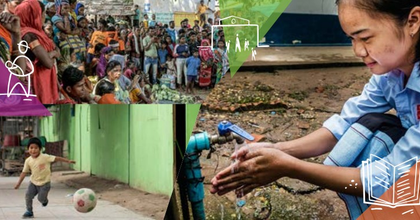Health inequities shortening lives by more than 30 years in poor countries: WHO
By IANS | Updated: May 6, 2025 14:07 IST2025-05-06T14:02:04+5:302025-05-06T14:07:34+5:30
New Delhi, May 6 Low social determinants of health are shortening the lives of people in poor countries ...

Health inequities shortening lives by more than 30 years in poor countries: WHO
New Delhi, May 6 Low social determinants of health are shortening the lives of people in poor countries by more than 30 years worldwide, according to a global report by the World Health Organization (WHO) on Tuesday.
The WHO defines social determinants of health as conditions in which people are born, grow, live, work, and age.
The report noted that beyond the health sector, factors such as lack of quality housing, education, and job opportunities can dramatically reduce healthy life expectancy.
It said that people in the country with the lowest life expectancy will, on average, live 33 years shorter than those born in the country with the highest life expectancy.
“Children born in poorer countries are 13 times more likely to die before the age of 5 than in wealthier countries,” the report said.
Women from disadvantaged groups are also more likely to die from pregnancy-related causes.
“Our world is an unequal one. Where we are born, grow, live, work and age significantly influence our health and well-being,” said WHO Director-General Dr Tedros Adhanom Ghebreyesus.
“Addressing the interlinked social determinants” can help, he added.
Further, the report showed that 3.8 billion people worldwide are deprived of adequate social protection coverage, such as child/paid sick leave benefits, with a direct and lasting impact on their health outcomes.
High debt burdens have been crippling the capacity of governments to invest in these services. As a result, the total value of interest payments made by the world’s 75 poorest countries has increased four-fold in the last decade.
Worryingly, the report also cited “sufficient evidence to show that health inequities within countries are often widening”.
Closing the gap and enhancing equity between the poorest and wealthiest sectors of the population within low- and-middle-income countries can help save the lives of 1.8 million children annually, revealed modelling studies.
The report also provides evidence-based strategies and policy recommendations to help countries improve health outcomes for all.
WHO emphasises that measures to address income inequality, structural discrimination, conflict, and climate disruptions are key to overcoming deep-seated health inequities.
Disclaimer: This post has been auto-published from an agency feed without any modifications to the text and has not been reviewed by an editor
Open in app